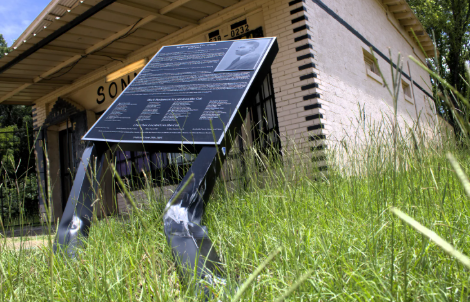Educational reform means school choice
Published 10:21 pm Saturday, December 26, 2015
Here’s a New Year’s resolution for the Texas Legislature: Deliver on some real education reform – school choice. If it doesn’t happen in a special session in 2016, lawmakers should at least start laying the groundwork for meaningful school choice legislation in the 2017 Legislative Session.
Indeed, one of the biggest disappointments of the last session was the Legislature’s failure to deliver on its promises of education reform. Though supporters were armed with new studies and clear support from Texas parents and GOP leadership, lawmakers lacked the political will. So the fight continues.
Trending
Supporters of school choice will find more ammunition for their cause at this year’s Texas Public Policy Foundation’s Policy Orientation. Nevada lawmakers will be on hand to talk about things they’re trying in that state.
“Two Nevada state leaders, Lt. Gov. Mark Hutchison and Sen. Scott Hammond are among the many national thought leaders set to speak this year,” said TPPF’s Kent Grusendorf. “They will both tell Texans about the most innovative educational-choice program in the entire nation. That bill passed the Nevada Legislature and was signed by Nevada Gov. Brian Sandoval this year.”
The Nevada Education Savings Account bill provides for universal school choice throughout the state, Grusendorf said.
“It empowers parents to make decisions regarding the specific educational services needed for their child,” he explained. “Customized education is the concept, which seems to be sweeping the nation. Parents are allowed to select from many options such as traditional public schools, special tutoring, books, online learning and other approved educational services. The parent receives a debit card, good only for approved educational services, and they can shop around to find what best serves the needs of each of their children.”
It was just a year ago, at the 2014 Policy Orientation, that economist Art Laffer unveiled a study showing how school choice would benefit Texas. Allowing parents to choose their children’s schools would have positive impacts on education, the economy and even property tax values, the study revealed.
“There’s a huge volume of evidence that shows school choice makes public schools do better, private schools do better, kids do better,” Laffer said. “It means better jobs, higher pay, and less crime.”
Trending
Texas lawmakers must acknowledge that what we’re doing now isn’t working.
“Texans spend over a quarter of a million dollars per year for a classroom of 25 students, yet the average teacher is paid $50,000,” Grusendorf pointed out. “In order to advance professionally, great teachers must leave the classroom, where they have great value to the institution, and move into administration, where in many cases, they add less value.”
The problem is the basic model, he added.
“The major problem with K-12 education today is the simple fact that over the decades, education has morphed into a monopoly,” he said. “Anyone who has studied economics or world history realizes that monopolies are inherently inefficient in the allocation of resources.”
It’s time for Texas lawmakers to commit themselves to real education reform.







